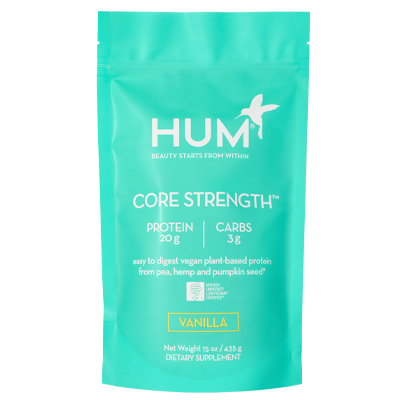Whether you want to become a workout warrior or simply maximize the time you devote to movement, there are some mental tricks that can help. A sports psychologist shares 10 ways you can make the most out of your workout.
It’s no secret that our brains are powerful. Your mind can actually influence your body and physical health (it’s a phenomenon known as the mind-body connection). If you’re feeling stressed out, that can manifest in a stressed-out gut (think: bloating, indigestion, and more). Additionally, feelings of loneliness can actually lower your immunity and cause increased inflammation in the body, according to the American Psychological Association (APA).
While a lot of attention has been paid to the darker side of the mind-body connection, it’s a two-way street. You can use the mind-body connection to elicit positive reactions in your body. For decades, athletes have been harnessing their thoughts to help improve their physical performance through sports psychology techniques, and you can too. That’s right: You can use the power of your brain to help you make the most out of your workouts.
Whether you simply want to make working out more of a habit of you’re trying to hit PRs in the gym, there are a few simple mental tricks you can try to do so. We spoke to Katrina Radke, MFT, sports psychologist at WeCoach4U, Olympic swimmer, and author of Be Your Best Without the Stress, to find out what they are.
What Is Sports Psychology?

What exactly is sports psychology? In technical terms, it’s an area of psychology that focuses on optimal performance and well-being of athletes, according to the APA. Sports psychologists work with athletes of all ages and abilities—from recreational youth participants to Olympic athletes.
It’s all about maximizing your potential, Radke says. “It’s about looking to see what’s possible within our own limits,” she says. “And looking to maximize who we are as people and how we go about our time.”
Radke says sports psychology is also a practice in balancing self-improvement with self-compassion and working to be happy with where your performance is at. “It’s important to get to a place where you’re thankful for where you are while wanting to see what next threshold you might be able to cross.”
We might not all be able to have Olympic-level sports psychologists with us at the gym, but you can steal some of their secrets.
10 Mental Strategies to Boost Your Workouts

Ready to ramp up your workouts? Here are 10 mind tricks to try.
1. Get Clear on Your Why
The number one rule of motivation? You need to have a clear reason as to why you’re working towards a goal. “If you don’t have a vision of why you’re showing up there every day, you’re not going to want to go on the days when you don’t feel like getting out of bed,” Radke says. “Be clear on what’s motivating you to go.”
Are you working out to feel better? To get yourself on a more regimented schedule? To sleep better? To get stronger? Any of these reasons will help you complete the workout on the harder, busier days—even if that means just getting a 10-minute Hot Girl Walk in.
You can make a list of reasons if you want to, but Radke says you just need a clear vision of what you’re chasing. “I like to think about how I’ll feel one month from now or six months from now because I’m doing this,” she says. “This will help you feel excited to go work out.”
2. Find Intrinsic Motivators
When it comes to motivation, there are two main types: intrinsic and extrinsic. Intrinsic is the incentive to engage in an activity because it derives pleasure (and because you have a genuine interest in it). Extrinsic motivation involves external incentives, especially motivation arising from the expectation of reward (like people giving you compliments from losing weight) or punishment (like being shunned from your gym if you don’t show up every day).
Extrinsic motivation isn’t as effective, and can actually damage your overall motivation for a task, according to research at the APA. That’s why it’s so important to root your workouts in intrinsic motivation. “If your goal is simply to lose weight, it’s going to be harder to show up for hard workouts,” Radke says. But if you’re motivated by hanging out with friends in your kickball league after a game, you’ll be more likely to enjoy the activity and stick with it.
Rather than focusing on getting compliments about the weight you lost or the attention you’ll get in a swimsuit, try to dig a little deeper. Do you want to get stronger so you can live a more active lifestyle? Do you want to feel more confident in yourself by following through on a commitment? Do you want to feel happier from all the endorphins the movement gives you?
These goals will help you stay motivated through even your toughest workouts (or encourage you to show up on days you don’t want to).
3. Have an Attitude of Gratitude
Practicing gratitude can help you get more out of your workouts. It’s easy to fall into the trap of feeling like you’re not doing enough, you’re not strong enough, or you’re not fit enough. But Radke says working to get to a place where you can appreciate who you are every single day will help you stay motivated in the long run. “If we’re feeling sad or tired or lonely, we don’t have to feel ashamed about those things,” she says. “We can appreciate that, as human beings, we contain multiple facets of who we are. That can lead to us being more accepting of ourselves and saying, ‘I’m just going to go for it a little more even if I fail or if I don’t hit that number on the scale.’”
It’s true: Research shows that athletes who practice gratitude have increased life satisfaction, social connectedness, resilience, quality of sleep, and reduced psychological distress. Additionally, recent research has shown that athletes with higher levels of gratitude report greater social support, satisfaction in life and sport, team cohesion, and lower levels of burnout.
4. Applaud Yourself for Showing Up
Religious gymgoers and beginners alike know it’s all too easy to consider any workout where you didn’t hit a PR a failure. But Radke says the key to long-term improvement in your workouts is to applaud yourself for being consistent—even if it wasn’t your best day. “The question becomes: Did you show up?,” she says. “If the answer is yes—you went to the class or the practice or the gym—that is a success in itself.” Practicing self-compassion (especially on your harder days) will help keep you motivated to keep coming back and give it your all.
5. Anchor Yourself With Music
“In terms of performing, getting yourself ready to perform, or even just getting yourself focused, music is very powerful,” Radke says. There’s actually a mental trick around music you can use to get the most out of your workouts. It’s called anchoring, and it’s used by sports psychologists everywhere.
“If you have a certain kind of music playing in the background and a visual stimulus (like a video of yourself or someone you idolize doing what you want to do during the performance), you’re going to start anchoring in an emotional response to the music you’re listening to,” Radke explains. “Once you start hearing that song—no matter when or where you hear it, you’re going to have a positive association with the music.” Read: When you hear this song, your body is going to expect success.
6. Anchor Yourself With Movement
You can also anchor yourself with movement: All you have to do is celebrate every single success during your workouts. “If you celebrate when you achieve a win (like throwing your fist up into the air or snapping your fingers), you can actually trigger a physiological change in your body,” Radke explains. “If you consistently practice celebrating your wins, you start associating that experience. You start expecting to feel good during your workouts rather than beating yourself up.” Maybe a reason why NFL players are known for their celebratory touchdown dances!?
7. Find a Time That Works For You
The pressures of the “That Girl” trend have everyone thinking they need to work out at five in the morning. But Radke says the key to getting the most out of your workout is doing it when it works for you. “If you try to do it at a time that’s miserable for you, it’s not going to work the same,” she explains.
Of course, there are benefits to getting up and moving in the morning. “Hormonally, just getting up in the morning and moving right away is really powerful,” Radke explains. “But you have to be honest with yourself about what’s going to work best for you. Maybe it’s after work at 6 p.m.—that’s OK too.”
8. Start With Success
Another expert-backed tip to have a successful workout? Start with something you know you’ll be successful at. It could be as simple as three stretches in the morning or five pushups when you get to the gym. “If you start with something small and something you know you’re going to be successful at, you’re going to do well on it,” Radke says. “And then once you get there, you’ll feel encouraged to keep going throughout the entire workout.”
If you’re just starting your workout journey, Radke says this approach is especially helpful for building your confidence.
9. Meditate
A zen meditation session and a hardcore workout might not seem to go hand-in-hand, but they do. (There’s a reason why elite athletes practice meditation regularly.) It’s a mindfulness practice that encourages you to step into the present and practice self-awareness. “The more we can become aware of who we are and why we’re functioning the way we are, the easier it is to do what we want to do,” explains Radke.
Additionally, the practice of meditation promotes rest—a key component of successful workouts. “You need to rest the body and calm it down so that it can be balanced. We don’t want to burn the candle at both ends,” Radke says. “Allow yourself the downtime to nourish your body.”
10. Listen to Your Body (And Let It Rest)
It may sound cliche, but it’s true: You can’t pour from an empty cup. Radke says it’s important to listen to your body and allow it the rest it needs. “There are times when you realize your body is telling you that you don’t need to workout because you’re sore or you’re stressed out emotionally and you just need to give yourself a break for a day,” she explains. “Not everyone has time to work out every day, and that’s OK.”
While research has confirmed that repetition is key to forming a habit (or staying consistent with your goals), allowing yourself a little flexibility will set you up for success in the long run. Additionally, rest and recovery will set you up for success in the short term. You simply won’t be able to achieve peak performance in a workout if your body is still painfully sore from the day before or if you’re feeling tired or stressed. Allowing yourself to rest and recover will allow you to come back to your workout feeling refreshed and recharged. “Rest is as important as hard work,” Radke says.

13 Creative Ways to Use Protein Powder (Without a Smoothie in Sight)

Wait, Should You Be Running or Jogging? Fitness Experts Answer

Everything You Need to Know About Losing Weight in a Safe, Sustainable Way






